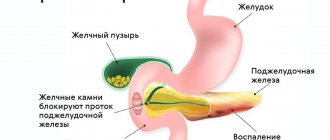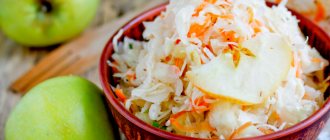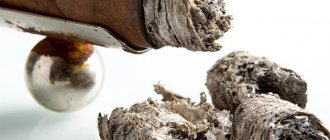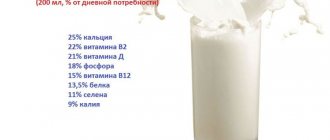Growing attention to food components has led to increased interest in inulin. It is talked about as a prebiotic, dietary supplement and even a way to lose weight. However, many people have no idea what inulin is. In the article we will understand what the substance is and what benefits it has for the body.
Inulin is a polysaccharide that represents the group of fructo-oligosaccharides. As a rule, it is found in the roots and tubers of plants. Inulin is a prebiotic - it stimulates the growth of beneficial microflora.
Chicory
About 47% of the fiber found in chicory root is inulin.
Instant chicory is used as an alternative to regular coffee by people suffering from various diseases of the cardiovascular system.
According to German scientists, chicory helps restore and maintain the adequate composition of intestinal microflora and improves digestion. It is important to note that the plant not only stimulates the growth and reproduction of beneficial bacteria, but also inhibits the vital activity of pathogenic forms.
Based on the results of Japanese studies, we can conclude that chicory root has a complex positive effect on the human body. It helps prevent and delay the development of diabetes mellitus, improves the rheological properties of blood.
It has been proven that chicory has a choleretic effect. This property prevents the development of cholecystitis (especially in the presence of gallstones) and has a beneficial effect on the concentration of cholesterol in the blood plasma.
Egyptian scientists conducted a study in 2010 that discovered the plant's powerful antioxidant properties.
Chicory root is also good for the liver (protects hepatocytes from oxidative damage).
Inulin fiber contained in chicory has a beneficial effect on the functioning of the digestive tract and reduces the risk of developing diabetes. A chicory drink is an extremely useful coffee replacement option.
Dandelion greens
Dandelion greens are a valuable source of soluble fiber. The plant contains a noticeable amount of inulin (4 g per 100 g of product).
Dandelion leaves increase the population of beneficial bacteria in the lumen of the digestive tract, help strengthen the immune system and increase the body's resistance to various external infectious agents.
It has been proven that dandelion has a diuretic effect and can be used as an auxiliary method for the treatment of urolithiasis and arterial hypertension, accompanied by edema.
Dandelion greens also reduce blood cholesterol levels, prevent premature aging and the clinical manifestation of cancer pathologies. The described effects have been scientifically proven.
Thus, dandelion greens increase the number of “good” intestinal bacteria, improve the course of digestive processes, strengthen the immune system and reduce the risk of malignant tumors.
Useful properties of the compound
Like many substances of natural origin, inulin has a number of beneficial qualities. Let's see what exactly they manifest themselves in.
For adults
This compound can rightfully be called an ally in the fight for health.
Indeed, when taken correctly, this polysaccharide has a beneficial effect on the body:
- Improves metabolism.
- Removes toxins and wastes, heavy metal salts and radionuclides from the body (moreover, it is considered one of the best cleansing substances). The following also help remove toxins from the body: black radish, lemon, semolina, tomato juice, apricots, kombucha, birch sap, corn, sencha tea, milk thistle meal, spirulina, stevia and marmalade.
- Stimulates the growth of bone tissue, which prevents disturbances in the functioning of the bone apparatus. This is due to the fact that inulin activates the absorption of calcium by the body.
- Strengthens the immune system (the protective systems of the gastrointestinal tract, ureters and bronchial tracts are especially strengthened).
- Reduces blood glucose levels.
- Regulates the functioning of the intestines and maintains the integrity of its mucous layer.
- By cleansing the liver, it normalizes its function, which is used for the prevention and complex treatment of hepatitis (especially types B and C).
- Significantly reduces the risk of tumors and other cancer complications.
As you can see, the list is impressive. It is not surprising that inulin has firmly become one of the popular preventive agents. Practice shows that its healing properties are most fully manifested when taken by older people.
For children
A substance obtained from plants can also help a child. Such assistance usually takes the form of the following:
- improving digestion (by maintaining intestinal microflora in tone, the compound thereby removes feces in a timely manner, preventing constipation);
- maintaining a stable acid balance;
- strengthening bone tissue and ligaments, which are weak in children due to age. With constant use (more than six months), the bones become denser faster;
- normal absorption of valuable vitamins and minerals. Some of them (calcium, magnesium) in their pure form are still difficult for the crumbs to digest, and inulin seems to soften them;
- removal of harmful substances and allergens from the body.
Another very valuable quality for children is supporting their immunity. Children aged 1-1.5 years need such help most of all: during this period, their body is deprived of maternal antibodies given at birth, and the formation of its own defense begins. And this carbohydrate comes in handy.
We recommend that you read about the concentrated carbohydrate maltodextrin.
Jerusalem artichoke
100 g of Jerusalem artichoke contains about 2-3 g of dietary fiber, of which 76% is inulin.
Foreign studies have demonstrated that Jerusalem artichoke normalizes the state of intestinal microflora and prevents the development of constipation.
The plant also helps strengthen the nervous system (improves neuromuscular and interneuronal signal transmission) and increases overall metabolism.
Jerusalem artichoke contains large quantities of potassium and thiamine ions, which are extremely important for ensuring adequate contraction of skeletal muscles.
Jerusalem artichoke improves immunity, helps strengthen the nervous system, and ensures coordinated functioning of the musculoskeletal system.
Inulin content in foods
Inulin is found in large quantities in the tubers and roots of dahlias, artichokes and dandelions. Among food products, the leaders in the content of this polysaccharide are chicory root, garlic, leeks and onions. It is also found in large quantities in raisins, asparagus, and bananas.
Garlic
About 11% of the mass of garlic is inulin. It is also rich in a group of prebiotics such as fructooligosaccharides.
According to the scientific community, garlic stimulates the growth of fecal bifidobacteria and provides reliable prevention of infectious and inflammatory diseases of the gastrointestinal tract.
Researchers claim that garlic helps normalize blood cholesterol levels (lowering LDL, VLDL, TAG, increasing HDL), prevents colorectal cancer, and improves the functioning of the immune system.
Antitumor activity is ensured due to the content of a large amount of allicin. It is this substance that today is considered one of the most potent anti-carcinogenic agents. In some countries, the production of drugs containing allicin has been launched.
Garlic is rich in inulin and has a wide range of beneficial properties: improves digestive function, reduces the risk of atherosclerosis (by reducing cholesterol), and reduces the incidence of cancer.
Inulin in supplements
Most of the inulin offered as supplements and in finished products is produced from Jerusalem artichoke tubers. For this purpose, varieties with a high content of the substance are used. The result of production is a concentrated powder with a sweet taste. All the beneficial qualities of inulin are preserved in preparations obtained from Jerusalem artichoke.
It is important to remember that the benefit of inulin for the body and figure also lies in slowing down the absorption of fats and simple carbohydrates. Therefore, in consultation with a doctor, it can be used as an additional means for weight loss.
Inulin may be part of a dietary supplement or medication. For example, it is contained in the drug “Fitomucil Sorbent Forte”. The product consists of a natural enterosorbent - the shell of Psyllium plantain seeds, as well as inulin and live probiotic bacteria. The drug is used for diarrhea, intoxication, including food poisoning, as well as allergic dermatoses. Inulin in the drug promotes the growth of beneficial microflora and accelerates recovery.
Onion
Onions are almost similar to garlic in terms of the amount of inulin (7-9% by weight).
Indian studies show that the plant modulates the immune system (activates the proliferation of thymus and spleen cells, reduces the production of free radicals and inhibits the formation of free radicals).
According to Belgian scientists, onions reduce the amount of triacyglycerides and low-density lipoproteins in the blood plasma, thereby preventing the appearance of atherosclerotic plaques, which are extremely dangerous to human health.
Experts say that onions also prevent the development of benign (polyps) and malignant pathologies of the lower parts of the digestive system.
Onions have many bactericidal components in their composition. It is recommended to use the plant for any infectious diseases.
Onions are a valuable natural source of inulin. The plant not only normalizes the functioning of the digestive system, but also reduces the risk of premature mortality from cancer and cardiological diseases.
Asparagus
100 g of asparagus contains approximately 2-3 g of inulin.
Chinese researchers have found that asparagus, when entering the human body, exhibits strong antitumor activity. Consumption of the plant is associated with a low risk of colon cancer and liver carcinoma.
The plant is also a full-fledged prebiotic, regulating the number of various representatives of the microflora of the digestive tract and accelerating the excretion of feces.
Asparagus is a valuable prebiotic that restores the balance of intestinal microflora and prevents the appearance of malignant tumors.
Are there any contraindications and side effects?
There are no restrictions on the consumption of inulin, as well as side effects from taking it. The only contraindication for consuming a large number of products and dietary supplements containing polysaccharide is considered intolerance to this compound. In the absence of allergies, the use of polysaccharide is indicated for the elderly, children, and patients with chronic pathologies and intestinal disorders.
You need to be careful with the use of inulin in the following cases:
- pathology of the digestive tract, accompanied by diarrhea, flatulence and heartburn (inulin enhances these manifestations);
- taking antibacterial drugs, since inulin can prevent their complete absorption;
- varicose veins;
- haemorrhoids;
- spasms of the upper respiratory tract.
Only the attending physician can determine whether a person needs additional doses of inulin.
Be sure to read:
Intestinal microbiota: what is it and how to check its condition?
Bananas
Bananas are rich in macro- and microelements, vitamins, and fiber. Bananas also contain inulin (0.5-2% by weight).
Green bananas are of particular value, since they have a pronounced prebiotic effect.
According to the Department of Food Science and Nutrition (USA), the systematic addition of bananas to the diet helps reduce body weight, improves intestinal microbiocenosis, and helps eliminate a number of dyspeptic disorders (flatulence, constipation, cramping pain in the lower abdomen).
After eating bananas, a decrease in blood glucose concentration is observed. The effect, according to Mexican scientists, is due to an increase in the sensitivity of muscle and fat tissue cells to insulin.
Thus, bananas are a valuable source of fiber, which is important for ensuring adequate functioning of the gastrointestinal tract. The plant also helps normalize glucose metabolism in the body.
Burdock root
100 g of burdock root contains about 4 g of fiber, almost 90% of which is inulin.
Burdock is an extremely popular product in Japan and China. In the CIS countries it is usually used by representatives of traditional medicine.
According to Chinese researchers, taking burdock root increases the number of lactobacilli and bifidobacteria in the lumen of the digestive system, and blocks the growth and reproduction of pathogenic representatives of the bacterial flora. The plant also stimulates the act of defecation (increases the speed of passage of feces, improves the properties of feces).
Burdock has pronounced anti-inflammatory and antioxidant properties, and also reduces blood sugar.
Scientists from the USA recommend using burdock as a powerful anti-cancer agent.
Burdock root stimulates the act of defecation and the functioning of the digestive system as a whole, helps maintain adequate microflora, and normalizes the metabolism of glucose and insulin.
Methods of use
Methods of administration for therapeutic and sports purposes are different.
- According to clinical indications, take half an hour before meals, in tablets, orally, a couple of pieces up to 4 times a day, first dissolved in a glass of water, juice, or kefir. The course will require 3 bottles of inulin. The break between courses is two months. If powder is used, intake is limited to a teaspoon with each meal.
- Sports training requires a dose of 10 g per day. Start with 2 g per day. After a few weeks, increase to 5 g, and then to 10 g. Drink in courses a month later or according to an individual schedule drawn up by a trainer.
Author Maria Ladygina
Scientific consultant of the project. Physiologist (Faculty of Biology, St. Petersburg State University, bachelor's degree). Biochemist (Faculty of Biology, St. Petersburg State University, Master's degree). Hatha yoga instructor (Institute of Human Resource Development Management, GENERATION YOGA project). Researcher (2013-2015 Ott Research Institute of Obstetrics, Gynecology and Reproductology, work with markers of female infertility, analysis of biological samples; 2015-2017 Research Institute of Highly Pure Biological Products, drug development) Author and scientific consultant of websites on healthy lifestyle and science (in field of life extension) Since 2019, scientific consultant of the Cross.Expert project.
Yacon root
Yacon is a perennial herbaceous plant with a pleasant aroma and taste (reminiscent of apple and watermelon). It is rich in fiber, represented by fructooligosaccharides and inulin (up to 60% by weight).
Japanese scientists conducted a large study in 2011, during which it was found that yacon root helps prevent the development of atherosclerosis (reduces the number of TAG and LDL, increases the level of HDL).
Yacon also stimulates the growth of beneficial microorganisms in the digestive tube, eliminates constipation and increases the activity of local and general immune factors.
Yacon root is a little-known but extremely useful product that normalizes the functioning of the digestive, immune and endocrine systems.
Jimaki root
Jimaka is a South American turnip with white flesh and a brownish skin. It goes well with any salads (especially vegetable and fish), and contains inulin (from 11 to 14 g per 100 g of plant).
The product normalizes glycemic levels. Korean experiments found that the plant's root extract helped lower blood glucose levels in rodents by inhibiting alpha-glucosidase.
Jimaki root is rich in vitamin C, which modulates the immune system. The plant is also balanced in amino acid composition.
Jimaki root is useful not only for the digestive system, but also for maintaining the health of the endocrine and immune systems.










